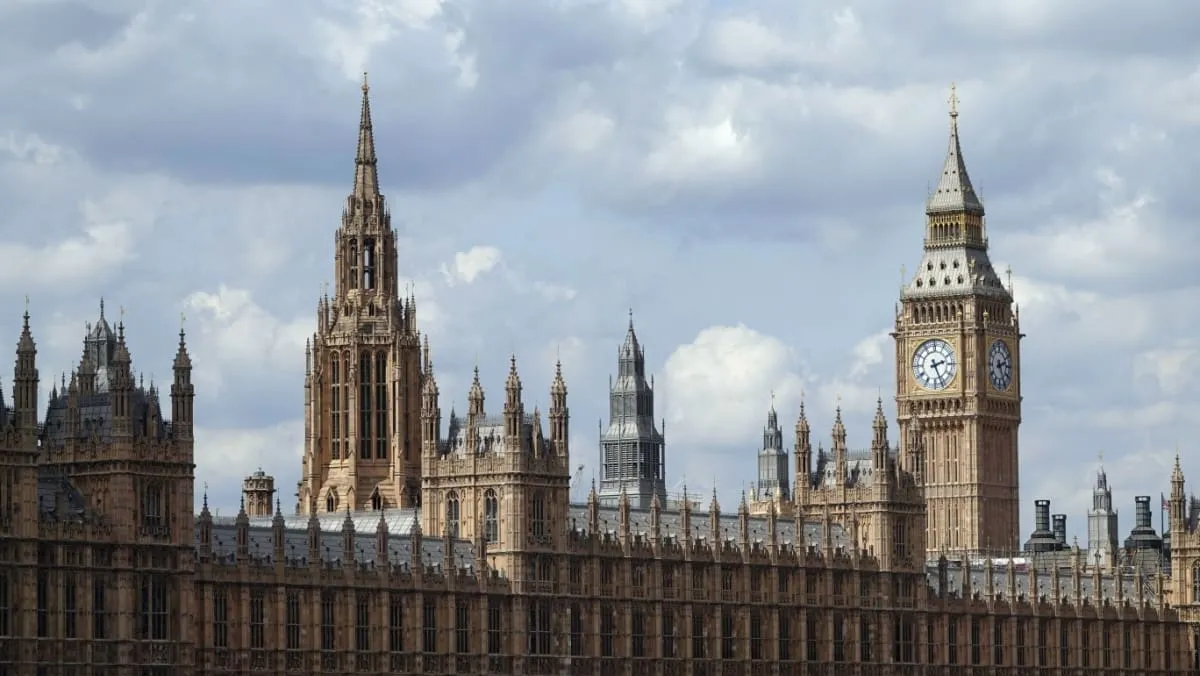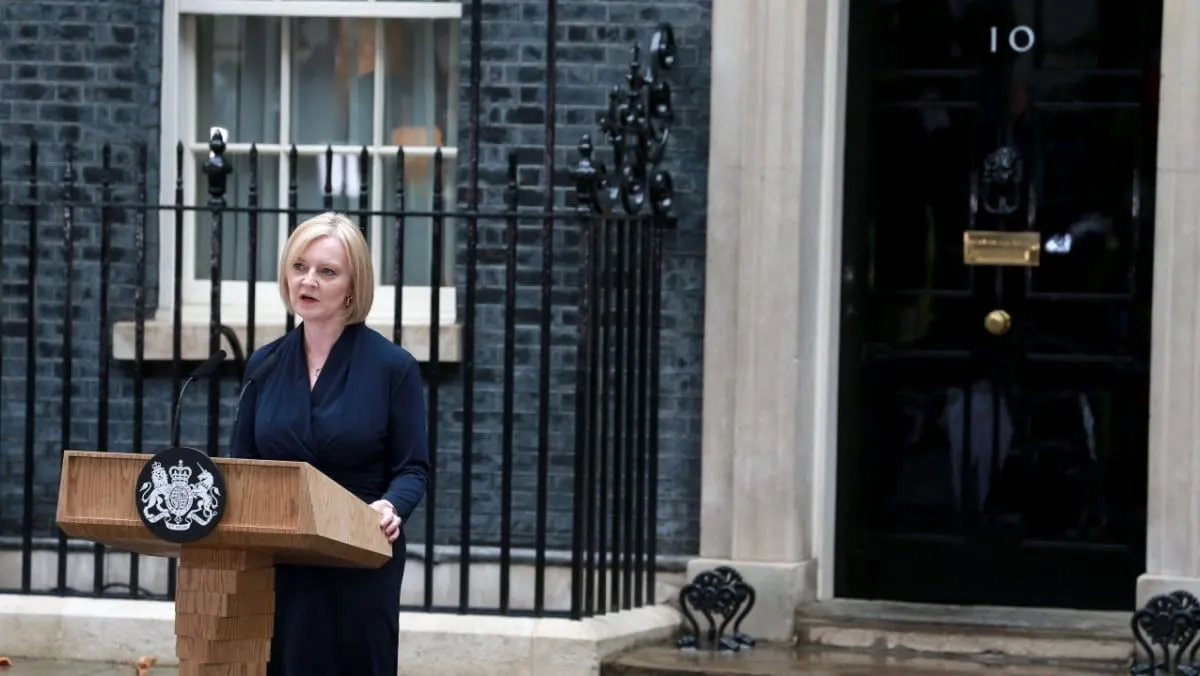
Pound sterling held steady near multi-month highs against the U.S. dollar on Thursday, following British Prime Minister Rishi Sunak's call for a snap UK general election on July 4 and data showing that April inflation slowed less than expected.
Sterling ticked up against the dollar at $1.2745 (a gain of 0.22%), after reaching a two-month high of $1.2761 the previous day. The rise followed data indicating that UK consumer prices increased by 2.3% annually in April, close to the Bank of England's 2% target but not slowing as much as anticipated.
The British currency hit a three-month high against the euro in early trading but weakened later as eurozone business activity data boosted the euro by 0.2% to 85.26 pence.
As per data cited by Reuters, sterling options volatility, indicating trader demand for protection against large future price swings, rose for contracts covering the July 4 election date. Two-month sterling options volatility saw its largest one-day increase since mid-April on Wednesday, reaching 6.09%, its highest level in a week.
如果您今天進行了交易,請計算您的假設損益(總成本和費用).
市場

金融工具


帳戶類型
方向
數量
金額必須等於或高於
金額必須小於
金額應為最小手數增量的倍數
USD
EUR
GBP
CAD
AUD
CHF
ZAR
MXN
JPY
值
佣金
點差
槓桿
手續費
所需保證金
隔夜利息
過去的表現並不是未來結果的可靠指標。
所有與你帳戶貨幣不相同貨幣計價的金融商品的倉位,在平倉時將被收取轉換費用。
The start of election campaigns by Prime Minister Rishi Sunak and Labour Party leader Keir Starmer drew attention on Thursday.
However, analysts noted that the election is unlikely to significantly impact markets. Sunak's Conservative Party currently trails Labour by approximately 20 percentage points in opinion polls.
Sunak's predecessor, Liz Truss, saw her brief premiership in 2022 derailed by a program of unfunded tax cuts that led to a sell-off in British government bonds and negatively affected pound sterling.

In a comment to the Reuters news agency on May 23, Francesco Pesole, an FX strategist at Dutch bank ING, wrote that sterling was unlikely to be affected by the snap election call. According to the analyst, the pound was largely trading on U.S. and UK monetary policy, with the timing of BoE rate cuts a more significant factor than the election itself:
"The last time UK politics had any material impact on the pound outside budget announcements was when there was Liz Truss — and that was related to the budget too — outside of that it was the Brexit discussions. [...] Sterling now is trading almost entirely on the back of monetary policy in the UK and the U.S., so the question we should be asking ourselves is 'Will the election have any clear implications for Bank of England timing for rate cuts?' and we don't think so”.
Market pricing suggests that the Bank of England is most likely to begin cutting interest rates at its September meeting, though an August cut is also possible — both after the election.
Prior to the UK inflation data, it was uncertain whether the BoE would start cutting rates in June or August.
"It could have been a tricker one (for the Bank of England inflation had come in lower — the important bit was services inflation which was still too high — as the chance of a rate cut in June has declined," Pesole added.
UK inflation slowed to 2.3% year-on-year in April, falling to its lowest since July 2021, but not as far as markets had anticipated. Markets.com Chief Market analyst Neil Wilson wrote that the reading may be a blessing in disguise for the BoE, given UK wage growth levels:
“It may be a blessing for the BoE to prevent it from potentially cutting too soon in this cycle – we have seen how persistent inflation is and with UK wage growth still running at 5-6% there is plenty of juice in that particular tank. Either way, there is another month of data still to come”.
In a more detailed take in ING’s FX daily overview, Pesole wrote that the Dutch bank had a bullish call on the EUR to GBP pair, despite its recent lean towards the 0.85 support level:
“Surely, as we enter what will be a rather short campaign, sterling can be impacted by some pre-election pledges by Labour leaders (unless the polls show a major shift in favour of the Tories). Still, that may not be more than some noise in an overall direction for the pound, which remains determined by UK data, consequent BoE policy, and Federal Reserve expectations.
The higher-than-expected services inflation in the UK was a much more important event than the election announcement from a market perspective yesterday. The Sonia curve now only prices in 12bp of easing by August from the pre-CPI 25bp, and only 37bp by year-end. These expectations look too hawkish in our view, as we still see a cut in August and 75bp of easing by year-end. Accordingly, we stick to our bullish call on EUR/GBP despite the pair now eyeing the key 0.8500 support, and do not see reasons to adjust our views based on an earlier UK election”.
As of 13:00 on May 23, the GBP to USD currency pair, widely known as “cable” in forex markets, traded at $1.2735, with sterling ticking up 0.14% against the greenback.
EUR to GBP tilted in favour of the euro, with the common currency gaining 0.15% against sterling on the back of flash Eurozone PMIs hitting a 12-month high. EURGBP last traded at 0.8524.
When considering shares, indices, forex (foreign exchange) and commodities for trading and price predictions, remember that trading CFDs involves a significant degree of risk and could result in capital loss.
Past performance is not indicative of any future results. This information is provided for informative purposes only and should not be construed to be investment advice.
資產列表
查看完整的列表最新
查看全部
星期四, 21 十一月 2024

3 最小

星期四, 21 十一月 2024

3 最小

星期三, 20 十一月 2024

2 最小
